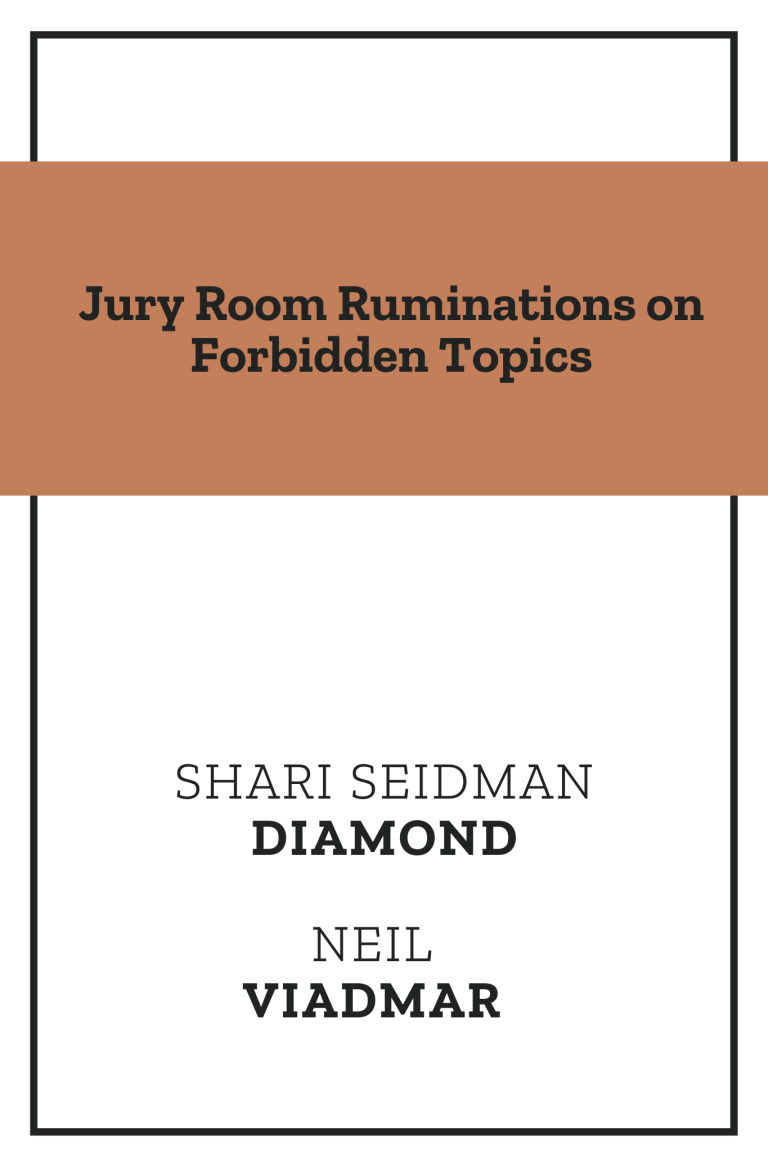From The Virginia Law Review:
The early English jury consisted of a group of witnesses assembled to report on facts they were presumed to know in advance of the formal proceedings. In sharp contrast, the modem American jury is expected to learn the facts of the case only from the evidence that the parties present at trial. According to many accounts, the rules of evidence of the Anglo-American legal system developed in large measure to control the jury and to channel its decisionmaking. A prominent feature of the rules of evidence is the set of exclusions that blindfold jurors to facts about the case that might influence their decisions in legally unacceptable ways.
The blindfolding approach to jury control implicitly assumes that jurors will not consider a topic unless it is introduced at trial. Modem behavioral research on the jury, however, both rejects the image of the jury as a blank slate on which evidence is etched and raises serious questions about the ability of some of these blindfolding efforts to control the jury by simply prohibiting mention of specific topics at trial. In this paper, we will suggest a revised approach to blindfolding. Our approach is informed by some preliminary data from the videotaped deliberations of forty civil juries that were collected as part of our Arizona Jury Project. The analysis distinguishes between conditions that are likely to benefit from blindfolding and those that call for other strategies to optimally focus the jury’s attention on legally relevant information.

